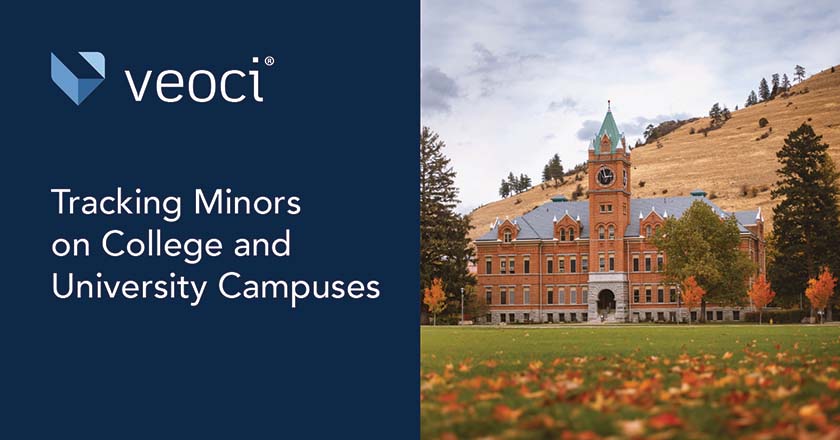Every year colleges and universities host minors on their campuses for tours, overnights, summer camps, and other events. Schools take on extra responsibility through these programs. Because institutions are responsible for the well-being of visiting minors while they are on campus, clear coordination among medical staff, campus safety officers, parents, and leaders is essential in ensuring that young students are safe.
It’s an easy list to write out, but a much harder one to complete. Colleges and universities have to prepare their solutions ahead of the visits and build communication pathways that reach across all involved staff. With all of this in mind, what are some challenges that universities face, and what best practices can these institutions follow to track minors and coordinate across campus?
All Considerations for Tracking Minors
The process goes beyond simply checking students in and out at the beginning and end of their visit. In order to provide a safe environment, universities need to coordinate with departments, personnel, and the families of visiting students.
Colleges and universities need to establish communication with both students and their parents. This not only lets students and their families receive regular updates, it also simplifies messaging during emergencies.
Volunteers or leaders for camp events also require background checks and training. School-side program leaders need to be aware of who has completed what requirements, and keep tabs on staffing needs. Prior to a campus visit, universities must dole out trainings and communicate to all stakeholders their respective expectations and responsibilities.
Coordinating communication at this scale is deceptive. Emails and conversations seem like go-to tools for this ask, but such a simple approach can cause confusion among staff and potentially costly mishaps.
Most colleges and universities that run programs for minors will also need to align a lot of parts and operations. Check-ins help ensure that minors are arriving at the right places at the right times; medical equipment and supplies for allergies have to be available and on-site; stakeholders must be informed of changes to set plans. A seamless operation is the result of a lot of behind-the-scenes work, and institutions should be willing to put the sweat into everything looking smooth.
Paper processes can’t keep up with today’s operational environment. Paper risks too many missed messages and creates more downtime. Overall, paper processes are a heavy weight that can drag down a university and indirectly create an unsafe environment for visiting minors.
Virtually Managing Students
Digital programs can help break down these barriers. Having one central location to track training, documentation, and communication allows the correct people to have access to information instantly. Veoci allows you to create digital templates that can be used each year, and comes with the flexibility to change as new requirements and corrective actions unveil themselves.
These programs can also be used for longer visits, such as overnights or summer camps. Leaders and other staff members can store vital medial information and records within Veoci to control the accessibility of each record. This not only puts critical data into the hands of stakeholders, it preserves the privacy of each minor as required by law.
During camp sessions or events with check-ins, staff can take attendance directly from their phones or provided devices. This creates a feed of data that updates in real-time, returning more control to administrators. Badges with pre-generated barcodes cut the process down to seconds.
If a student is late, staff can communicate with all stakeholders through the platform, and both an SMS and email will be sent to the student and their parent or guardian. Veoci has the added benefit of being easy to learn, cutting down on the amount of required training for new personnel who might be joining part way through a camp session.
Along with this, Veoci allows you to list and make assignments to indicate who is responsible for what, so that it is easier for different departments to find the person they need to talk to, no matter where in the organization they may work.
Ensuring Well-being
Minors may be present on college campuses for a host of different reasons, from short hour-long tours to long summer-long programs. No matter the length of their stay, colleges and universities are tasked with making sure visits are safe and successful. Digital platforms can make this daunting task less difficult, ensuring the institutions promote the well-being of their young visitors.








